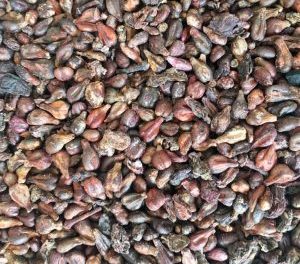Amaranth: The Ancient Grain Making a Modern Comeback
Amaranth, an ancient grain dating back thousands of years, has recently gained popularity as a sustainable superfood. Originating in South America, this versatile grain boasts exceptional nutritional value and environmental benefits, making it a worthy addition to any diet.
A Nutrient-Packed Powerhouse
Amaranth stands out as a nutritional powerhouse, offering an impressive array of vitamins, minerals, and essential amino acids. It is an excellent source of protein, fiber, iron, magnesium, phosphorus, and manganese. Additionally, it is rich in antioxidants, which help protect cells from damage.
Sustainable and Environmentally Friendly
Amaranth’s sustainability credentials are equally impressive. It is a hardy crop that can thrive in various climates and soil conditions, making it a resilient and low-maintenance option for farmers. Additionally, amaranth is a water-efficient crop, requiring significantly less water than other grains like rice or wheat.
Culinary Versatility and Culinary Delights
Amaranth’s culinary versatility makes it a welcome addition to various dishes. Its mild, nutty flavor complements both sweet and savory preparations. It can be cooked whole as a porridge or side dish, ground into flour for baking, or popped like popcorn. Amaranth also adds texture and nutrition to salads, soups, and stews.
Health Benefits and Potential
Amaranth’s nutritional profile contributes to its potential health benefits. Its high fiber content aids digestion and promotes satiety, helping with weight management and blood sugar control. Its rich antioxidant content helps combat oxidative stress, reducing the risk of chronic diseases. Additionally, amaranth may have anti-inflammatory properties and support heart health.
Promoting Sustainable Agriculture
By choosing amaranth, consumers actively support sustainable agriculture. Amaranth’s low water requirements and resilience make it a suitable crop for regions facing water scarcity or climate change impacts. Its ability to thrive in diverse conditions also promotes crop diversification, reducing the reliance on a few dominant crops and enhancing overall agricultural resilience.
Conclusion: A Sustainable Choice for Health and the Planet
Amaranth, an ancient grain with a promising future, offers a plethora of health benefits and environmental advantages. Its nutritional richness, culinary versatility, and sustainable cultivation practices make it an ideal choice for health-conscious individuals and environmentally conscious consumers alike. Incorporating amaranth into your diet is not only a delicious decision but also a responsible one, contributing to a more sustainable food system.




